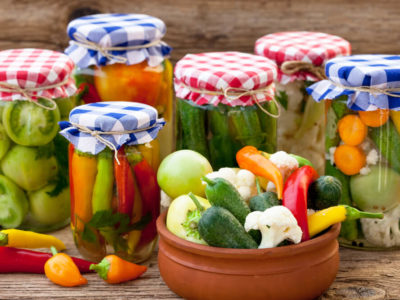Table of Contents[Hide][Show]
Around 2,700 B.C.E., King Shen Nong of China made a mistake.
They say it’s just a legend, but if it’s true…
King Shen Nong changed the world forever with an oopsie.
He made tea.
And it only took the Chinese another 700 years to figure out that tea had healing properties and could be applied to herbal medicine.
Now, this doesn’t mean that your standard continental-breakfast-at-a-chain-hotel-tea can cure your ills. Herbal teas are your ticket, and there are specific varieties for specific ailments.
More than 4,000 years later, human beings have extracted myriad medical uses from the cured leaves of the Camellia sinensis, which is actually an evergreen shrub found in East Asia.
Not every claim is corroborated by clinical studies, but in the vast history of tea, here are some of ailments it’s been said to aid:
- Cancer
- Heart disease
- Obesity
- Diabetes
- Headaches
- High cholesterol
- Mental fatigue
- Clogged arteries
- Inflammation
You see, tea contains antioxidants, as well as flavonoids.
So your evening cup may be providing major benefits you weren’t even aware of, including bolstering the intestinal and digestive systems. Now, let’s take a look at the best tea for gut health and why each of these is so beneficial.
Best Tea for Gut Health
Now, every tea is not created equally. These teas can have a positive and mobilizing effect on your gut health, and if you find yourself regularly afflicted, you may want to consider introducing them to your diet.
1. Pu-erh Tea
Pu-erh or pu’er tea is fermented and is often recommended as a digestif (an after meal drink to aid digestion).
We know fermentation is the golden ticket for spectacular gut health. The properties in the tea help to balance the bacteria in the microbiome, which helps the gut run optimally and digestion run smoothly.
But pu-erh is also linked to weight loss, lower cholesterol, clear skin, anti-inflammatory effects, and better sleep.
Related
Improve Your Health With Fermented Food
Learn more about the benefits of fermented foods, some do’s and don’ts, and what some of the most popular fermented foods are.
2. Ginger Tea
The compounds in ginger, gingerols and shogaols, help to activate saliva, bile, and gastric juice production, allowing the intestinal tract to remain lubricated.
Those same compounds also bolster stomach contractions which keep matter moving along the bowels.
Ginger has also been proven to reduce nausea, cramping, gas, bloating, indigestion, and more.
3. Peppermint Tea
From the Mentha piperita plant, peppermint contains menthol. This compound has been known to reduce inflammation, which in turn helps those afflicted with IBS.
The beauty of the healing properties in peppermint is you can take peppermint capsules or peppermint oil for a similar effect on the stomach.
Drink peppermint tea for a tummy ache, bloating, gas, and other intestinal aches.
4. Marshmallow Root Tea
The polysaccharides in marshmallow root perform a unique and necessary function— helping to promote the growth of mucus cells lining your intestinal tract.
This is ideal for those with perforated intestines or leaky gut, or those at risk of thinning their intestinal linings.
But marshmallow root doesn’t just coat the lining of your intestinal tract. It also increases mucus cell production in your stomach and throat, in addition to lowering histamine levels (which become higher during inflammatory periods.)
5. Senna Tea
Contained in senna tea, you’ll find chemicals called sennosides.
These chemicals dissolve in the colon which strengthens bowel contractions and keep the bowels functioning regularly. In other words? Senna tea can be a very effective laxative.
It’s best used when you’re experiencing constipation. Otherwise, your bowels will be more active than they need to be.
Related
Constipation: What to Know So You Can “Go”
Learn about constipation symptoms, causes, and how you can get constipation relief with some natural home remedies.
6. Gentian Root Tea
Gentian root grows all over the world in the form of flowering plants, which is lucky for those with trouble developing an appetite, because that’s exactly what gentian root can do for you. The iridoids, bitter compounds contained in gentian root, stimulate the production of digestive enzymes and acids.
Additionally, gentian root has been shown to divert the flow of blood to the digestive system, bolstering and aiding in its function.
7. Kombucha
Kombucha is a bubbly, tangy, live-cultured tea that’s produced by fermenting SCOBY (Symbiotic Culture of Bacteria and Yeast) with black, white, or green tea and sugar.
Every batch of kombucha has different strains and healing abilities depending on its origins. SCOBY kombucha is a popular probiotic tea because of its ability to aid digestion, detoxification, joint, immune, and mental health, and much more. You can make your own kombucha at home or pick some up at your local grocery store.
Probiotic Supplements
While it is a wonderful idea to support your gut, digestion, and overall health with these beneficial teas, you cannot get adequate probiotics from food and drinks alone.
The best way to ensure you are meeting your gut health needs is by taking a quality spore probiotic supplement. Our favorite is Just Thrive Probiotic.
Just Thrive Probiotic is the only product on the market with clinical studies proving that it arrives FULLY and potently intact every time… Delivering maximum immune, digestive, and total-body health benefits. Plus, Just Thrive’s exclusive strain, HU36™, is a free-radical-fighting, immune-charging game-changer, turning your gut into an antioxidant factory.
Final Thoughts
Now, not all of these teas will be found in your local grocery store aisle, so you may need to do a little searching.
The most important thing to remember is to source your teas carefully.
Go to natural food stores. Buy from reputable sources online. You could even try growing your own tea leaves, if you’ve got a green thumb, and you’re so inclined.
Drink responsibly, and remember to pair your daily cup of tea with Just Thrive Probiotic for maximum gut health benefits. (You can even open the capsule and mix it in without losing any potency!)
You May Also Like…
Editor’s Note: This post was originally published on January 30, 2020, and has been updated for quality and relevancy on February 16, 2023.






